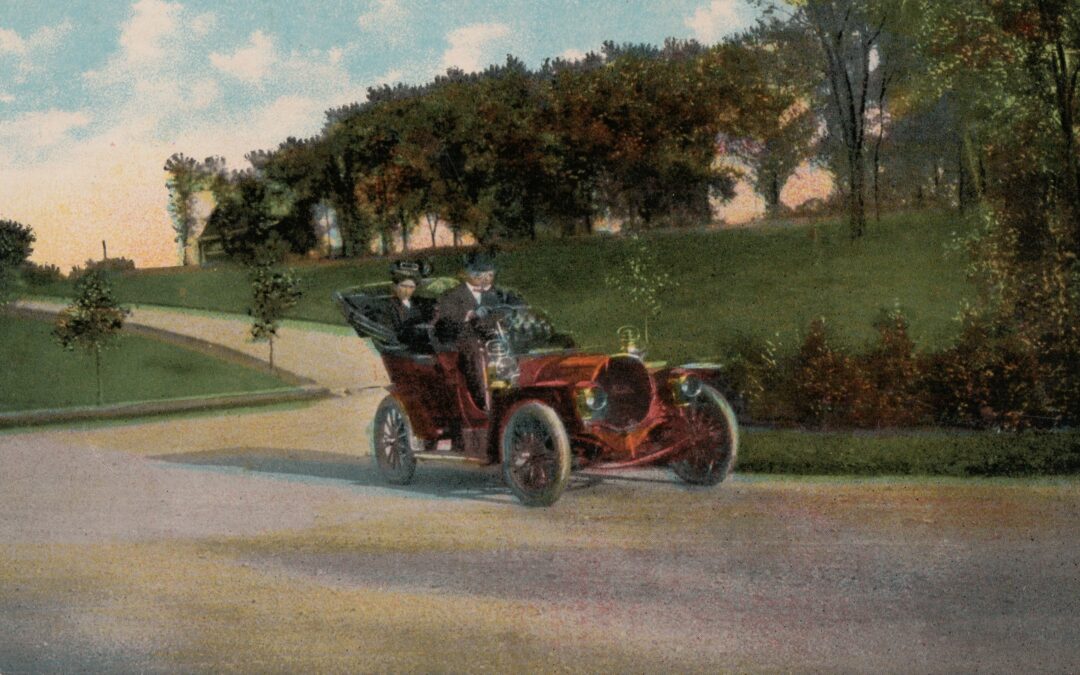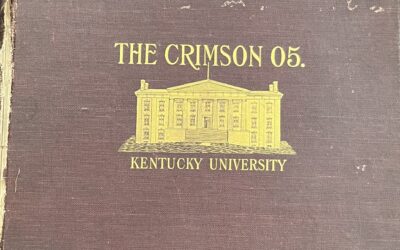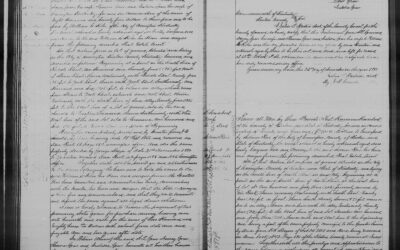Ever since our Bluegrass Roots newsletter featured these tips for family researchers in the Summer of 1982, countless genealogists have used their vacation time to uncover more about their family history. While these tips have stood the test of time, we’ve updated them to fit our modern, digital age. Let’s dive in.
Tip 1: Plan Your Research
Before you embark on your genealogy adventure, it’s crucial to have a road map. Start by consolidating all the information you already have. Fill out pedigree charts and family group sheets to visualize your family tree and identify the gaps that need to be filled.
Once you’ve outlined what you know, clarify what you aim to discover during your trip. Are you looking to uncover the mystery of a specific ancestor? Or perhaps trace your lineage back to a particular century?
With your objectives in mind, start strategizing. Identify the locations that hold the records you need, keeping in mind that jurisdictional boundaries may have changed over the years. Create a detailed itinerary of places to visit, from county courthouses to local libraries and historical associations.
A thorough plan will not only keep your research focused and effective but also save you from wasting precious vacation time. Remember, successful genealogy research is a blend of careful preparation and an open mind to unexpected discoveries along the way.
Tip 2: Prepare Research Worksheets
A successful research trip requires a clear understanding of what you know, what you need to find out, and where you’re likely to find it. To stay organized and focused, consider creating your own research worksheets.
A research worksheet is a structured document where you can consolidate all your genealogical information. Here’s a simple format you can follow:
- Ancestor’s Name: Write the full name of the ancestor you’re researching.
- Known Information: List all the information you already have about this ancestor. This could include dates and places of birth, marriage, and death, names of family members, occupation, and any other relevant details.
- Information Needed: Identify the gaps in your knowledge that you hope to fill during your research trip. This could include specific documents you’re looking for, such as birth certificates, marriage licenses, or military service records.
- Potential Sources: Based on the information you need, identify the places where these records are likely to be found. This could include courthouses, libraries, archives, or historical associations. Be aware that jurisdictional boundaries may have changed over the years, affecting where records might be held.
Creating a separate worksheet for each ancestor or family line you’re researching can help keep your information organized and easy to refer to during your trip. Plus, it provides a handy summary of your research to share with other family members or researchers who may be interested in your findings.
Remember, the more organized you are, the more productive your research trip will be!
Tip 3: Harness the Power of Historical Maps for Your Research
When conducting genealogical research, having access to detailed maps can be incredibly valuable. While modern GPS technology is helpful, there’s something special about a good old-fashioned map that allows you to visualize the entire area at a glance.
Consider the following resources to enhance your research:
- Historical Maps: Seek out historical maps of the area you’re researching. For example, I discovered a fascinating map from 1836 that depicts Kentucky, complete with roads, distances between locations, and inset maps showcasing specific regions. Such maps provide a glimpse into the past and can offer valuable insights.
- Atlas of Historical County Boundaries Project: The Atlas of Historical County Boundaries Project is an excellent resource that provides maps and accompanying text detailing the historical boundaries, names, organization, and changes of every county in Kentucky. This comprehensive project covers the period from the creation of the first county through December 31, 2000.
- Kentucky Transportation Cabinet: The Kentucky Transportation Cabinet offers archived county road aid maps and historical statewide official highway maps dating back to 1929. These maps can provide a snapshot of the transportation routes and infrastructure from different eras.
- Online Tools: Websites like www.randymajors.org offer specialized tools that allow you to view historical county boundaries of Kentucky as they existed in specific years. This can be particularly useful when researching specific time periods.
- University Resources: The University of Kentucky provides a research guide that includes links to historic Kentucky state resources and the Kentucky Historical Society Digital Collections. These collections often contain historic Kentucky maps that can enrich your research.
Tip 4: Consider Multiple Locations for Research
When you’re on a genealogy vacation, don’t limit yourself to just one source of information. There are numerous places you can visit to discover hidden treasures of your family’s past. By exploring a variety of locations, you’ll increase your chances of unearthing vital records, historical documents, and personal stories that paint a vivid picture of your ancestors’ lives.
If you’re ready to delve into your family’s past but don’t know where to begin, here are some essential locations to kickstart your genealogical research:
- Courthouses: Courthouses are treasure troves of historical records that can provide valuable insights into your family’s background. These records often include birth, marriage, and death certificates, as well as land deeds and probate files. Make sure to check the operating hours of local courthouses and plan your visits accordingly. Additionally, inquire about any specific summer hours or holiday closures that may affect your research.
- Libraries and Archives: Libraries and archives house a wealth of resources for family researchers. State libraries and archives are especially valuable, as they contain extensive collections of historical documents, newspapers, and books relevant to local communities. Take advantage of online catalogs to identify resources that can aid your research. Don’t overlook larger area libraries and college or university libraries, as they may have specialized genealogy departments with unique holdings.
- Historical Societies and Museums: Local historical societies and museums offer invaluable insights into the history and development of the regions where your ancestors resided. These organizations often maintain archives and collections that include photographs, maps, manuscripts, and other artifacts pertinent to your research. Reach out to them to learn more about their holdings and the assistance they can provide.
- Cemeteries: Visiting cemeteries can be an enlightening experience for genealogical research. Headstones and burial records can provide essential information such as birth and death dates, family relationships, and even additional clues for further investigation. Take note of the cemetery locations where your ancestors are buried and plan visits to document their resting places.
Tip 5: Your Packing List
Whether you’re delving into dusty records at a courthouse or meticulously deciphering tombstone inscriptions in a cemetery, these curated packing guides will ensure you have everything you need for effective and respectful research.
Visiting Courthouses and Other Locations
Visiting courthouses and archives is a common practice in family history research, as they often house valuable records such as birth certificates, marriage licenses, property deeds, and court cases. When preparing for such visits, you should consider packing the following items in your research kit:
- Notepads and Pens: Essential for taking notes. Consider bringing pens in different colors for organizing your notes by categories. Some researchers prefer to use pencils as certain archives prohibit the use of pens.
- Laptop or Tablet: A portable electronic device can be invaluable for typing up notes, accessing online resources, or storing digital copies of documents. Ensure your device is fully charged and bring along the charger just in case.
- Camera or Smartphone: For taking photographs of documents where permitted. Always ask the staff before you start photographing; some places may have restrictions.
- USB Flash Drive: A flash drive can come in handy if the archive allows for making digital copies of documents directly from their computers or scanners.
- Portable Scanner or Scanning App: Some facilities may allow you to use your own scanning device or app to make digital copies of documents. This is preferable to taking photographs when the quality of the copies is important.
- Money: Many archives charge a fee for making copies, so be prepared with some change. Also, some facilities may have a small entrance fee.
- Identification: Always carry a form of identification, as some archives and courthouses require it for access.
- Reading Glasses and Magnifying Glass: For reading small print or deciphering old handwriting styles.
- Comfortable Clothing: Ensure you’re dressed comfortably as you may be sitting for extended periods of time. A light sweater might be useful since some facilities can be chilly.
- Gloves: Some archives may require you to wear gloves when handling old documents to protect them from oils and dirt on your hands. Check the archive’s rules or consider bringing your own just in case.
- Snacks and Water: It’s easy to lose track of time when doing research, so pack a few snacks and a water bottle to stay hydrated and keep your energy up. You may have to keep these items in your vehicle – so maybe you need a cooler?
A Cemetery Hunting Kit is Helpful
Heading off for a cemetery research expedition? Make sure you’re fully equipped! Let’s go over a packing list that will help you make the most of your visit, and do so respectfully and safely.
Here’s what you’ll need:
- A Soft Brush: This will be invaluable in gently removing dust and debris from tombstones. Remember to be gentle; we’re treating history here!
- Personal Protective Items: Depending on the weather and environment, your list might include bug repellent, sunscreen, a hat, and layered clothing. These will keep you comfortable and protected throughout your exploration.
- Reusable Water Bottle and Snacks: Staying hydrated and fueled is key. You’re in for an exciting, but potentially long day of work!
- Hand Trowel or Extra Soft Brush: You’ll need this for those hard-to-reach or partially buried tombstones. Use them with care to uncover obscured inscriptions without causing any harm.
- Notepad and Pen or Portable Voice Recorder: For recording observations, impressions, and details. Who knows, you might just stumble upon an unexpected clue or link in your family history!
- Digital Camera or Smartphone: Perfect for taking photographs of tombstones for future reference. Again, respect the place and avoid any actions that could damage or disrespect the site.
Remember, your journey into your family’s past is as exciting as it is delicate. Pack wisely, respect the surroundings, and happy hunting!
Ready to Go?
In conclusion, these tips serve as a great starting point for your family research adventures, whether you’re visiting courthouses or exploring cemeteries. They provide valuable guidance and ensure you have the necessary tools to make your trips productive and respectful.
However, if you’re hungry for more tips and tricks from experienced researchers, there’s a wealth of knowledge waiting for you. The Front Porch Talks: Pre-1850 group recently discussed these topics in their last meeting, covering even more valuable insights. You can find the recording of their meeting in their chat room. If you’re not already part of the group, simply login in and request to join and access this valuable resource to expand your research techniques.
Remember, the more you learn and connect with other researchers, the richer your genealogical journey becomes. Embrace the adventure, stay curious, and keep uncovering the stories of your ancestors.





